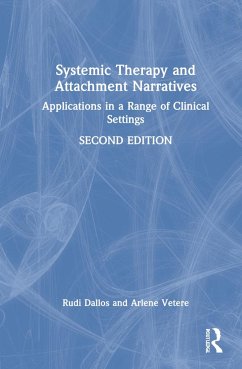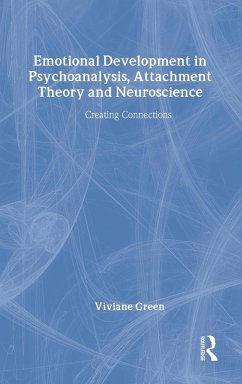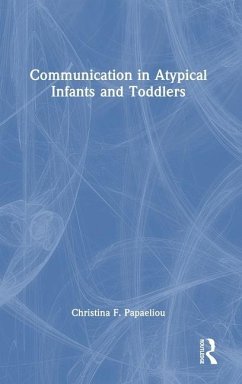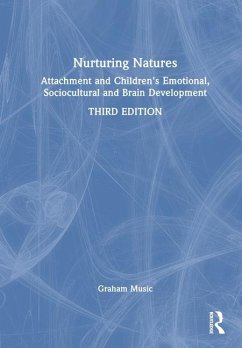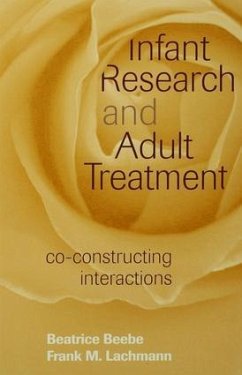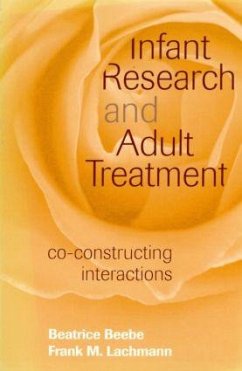
The Origins of Attachment
Infant Research and Adult Treatment
Versandkostenfrei!
Versandfertig in 1-2 Wochen
222,99 €
inkl. MwSt.
Weitere Ausgaben:

PAYBACK Punkte
111 °P sammeln!
The Origins of Attachment: Infant Research and Adult Treatment addresses the origins of attachment in mother-infant face-to-face communication. New patterns of relational disturbance in infancy are described. These aspects of communication are out of conscious awareness. They provide clinicians with new ways of thinking about infancy, and about nonverbal communication in adult treatment. Utilizing an extraordinarily detailed microanalysis of videotaped mother-infant interactions at 4 months, Beatrice Beebe, Frank Lachmann, and their research collaborators provide a more fine-grained and precis...
The Origins of Attachment: Infant Research and Adult Treatment addresses the origins of attachment in mother-infant face-to-face communication. New patterns of relational disturbance in infancy are described. These aspects of communication are out of conscious awareness. They provide clinicians with new ways of thinking about infancy, and about nonverbal communication in adult treatment. Utilizing an extraordinarily detailed microanalysis of videotaped mother-infant interactions at 4 months, Beatrice Beebe, Frank Lachmann, and their research collaborators provide a more fine-grained and precise description of the process of attachment transmission. Second-by-second microanalysis operates like a social microscope and reveals more than can be grasped with the naked eye. The book explores how, alongside linguistic content, the bodily aspect of communication is an essential component of the capacity to communicate and understand emotion. The moment-to-moment self- and interactive processes of relatedness documented in infant research form the bedrock of adult face-to-face communication and provide the background fabric for the verbal narrative in the foreground. The Origins of Attachment is illustrated throughout with several case vignettes of adult treatment. Discussions by Carolyn Clement, Malcolm Slavin and E. Joyce Klein, Estelle Shane, Alexandra Harrison and Stephen Seligman show how the research can be used by practicing clinicians. This book details aspects of bodily communication between mothers and infants that will provide useful analogies for therapists of adults. It will be essential reading for psychoanalysts, psychotherapists and graduate students. Collaborators Joseph Jaffe, Sara Markese, Karen A. Buck, Henian Chen, Patricia Cohen, Lorraine Bahrick, Howard Andrews, Stanley Feldstein Discussants Carolyn Clement, Malcolm Slavin, E. Joyce Klein, Estelle Shane, Alexandra Harrison, Stephen Seligman ¿






